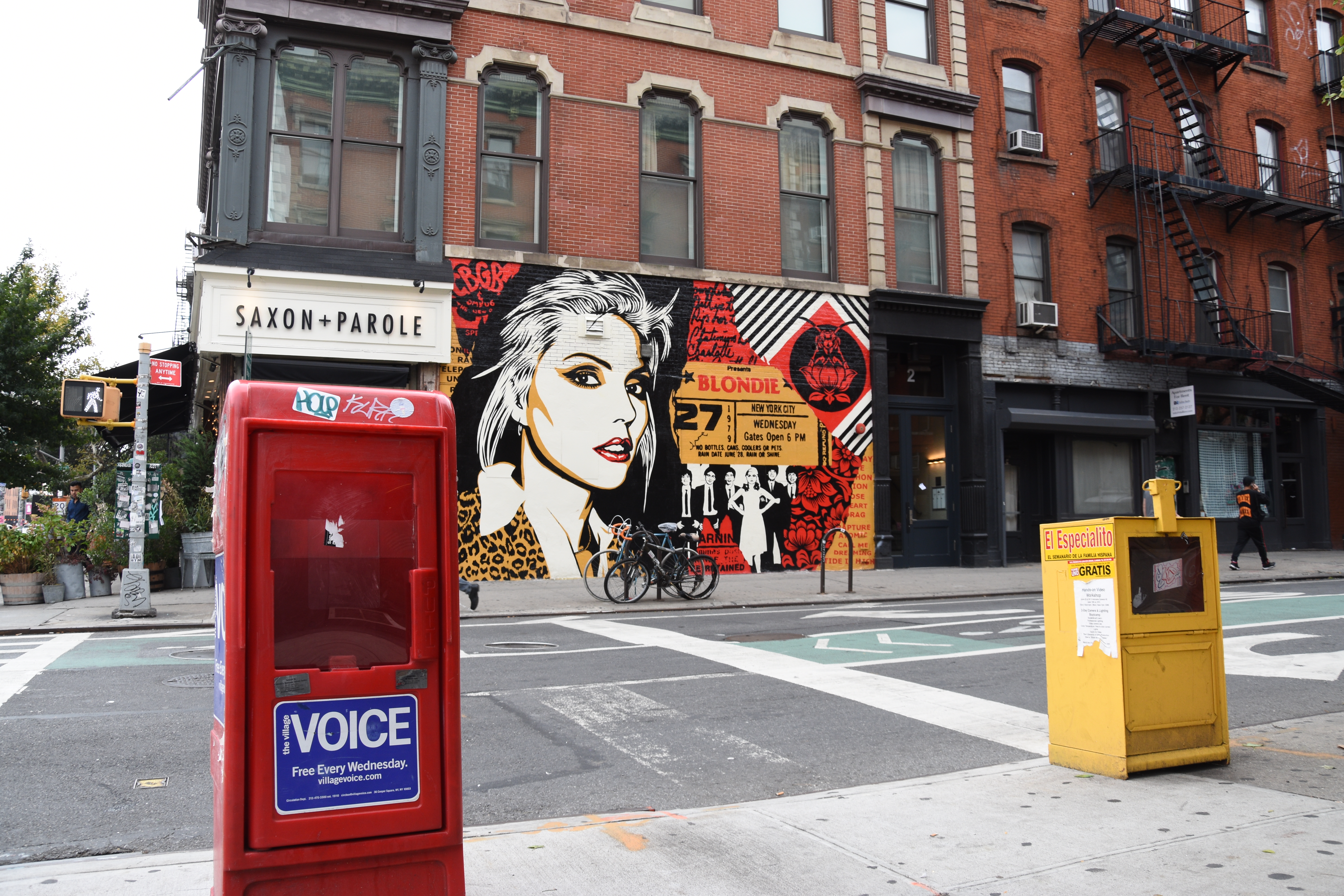
The Village Voice is niet meer. Het gratis weekblad uit de typerende rode boxen verscheen sinds vorig jaar al niet meer in print, en nu stopt ook de website ermee die ze sindsdien nog wel in de lucht hielden. Reden is financieel.
Vrijdag maakte de huidige eigenaar, Peter Barbey, op de redactie bekend dat hij de stekker uit de website trekt. “Door zakelijke realiteiten gaat The Village Voice stoppen met het publiceren van nieuw materiaal.” De helft van de ongeveer 40-koppige redactie krijgt direct ontslag. De andere helft blijft nog even aan om de verhalen van de Voice online te archiveren.
Lifeline
The Village Voice werd in 1955 opgericht door schrijver Norman Mailer. Het was een blad voor alternatief New York met vooral artikelen over cultuur, concerten, de New Yorkse culinaire wereld en ook scherpe verhalen over de New Yorkse politiek, en soms ook de landelijke politiek. Daarnaast had het blad wekelijks een uitgebreide agenda van de interessantste evenementen in het alternatieve circuit. Het was een lifeline voor jonge Amerikanen die zich in de stad wilden vestigen. Menig appartement is verkregen via een advertentie in de Village Voice.
Het stoppen van de website is een nieuwe tegenslag voor de New Yorkse lokale nieuwsvoorziening. Vorig jaar sloten ook de de websites Gothamist en DNAinfo. Sinds eerder dit jaar is Gothamist weliswaar terug in de lucht, zij het in een afgeslankte vorm. En in juli van dit jaar werd bekend dat de New York Daily News het voortaan moet doen met de helft van de redactie.
Barbey heeft een verklaring uitgegeven over het sluiten van het blad.
This is a sad day for The Village Voice and for millions of readers. The Voice has been a key element of New York City journalism and is read around the world. As the first modern alternative newspaper, it literally defined a new genre of publishing. As the Voice evolved over the years, its writers, editors, reporters, reviewers, contributors, photographers, artists and staff were united by the idea that the they spoke for and fought hard for those that believed in a better New York City and a better world. The Voice has connected multiple generations to local and national news, music, art, theater, film, politics and activism, and showed us that it’s idealism could be a way of life.
In recent years, the Voice has been subject to the increasingly harsh economic realities facing those creating journalism and written media. Like many others in publishing, we were continually optimistic that relief was around the next corner. Where stability for our business is, we do not know yet. The only thing that is clear now is that we have not reached that destination.The Village Voice was created to give speed to a cultural and social revolution, and its legacy and the voices that created that legacy are still relevant today. Perhaps more than ever. Its archives are an indispensable chronicle of history and social progress. Although the Voice will not continue publishing, we are dedicated to ensuring that its legacy will endure to inspire more generations of readers and writers to give even more speed to those same goals.
We have begun working to ensure that the enormous print archive of The Village Voice is made digitally accessible. I began my involvement with the Voice intending to ensure its future. While this is not the outcome I’d hoped for and worked towards, a fully digitized Voice archive will offer coming generations a chance to experience for themselves what is clearly one of this city’s and this country’s social and cultural treasures.
From the bottom of my heart, I thank everyone who pulled together to attempt create a new future for The Village Voice. Their passion and perseverance have inspired me. I will always be humbled by the grit they’ve shown and the dedication they have displayed.

Laat een reactie achter